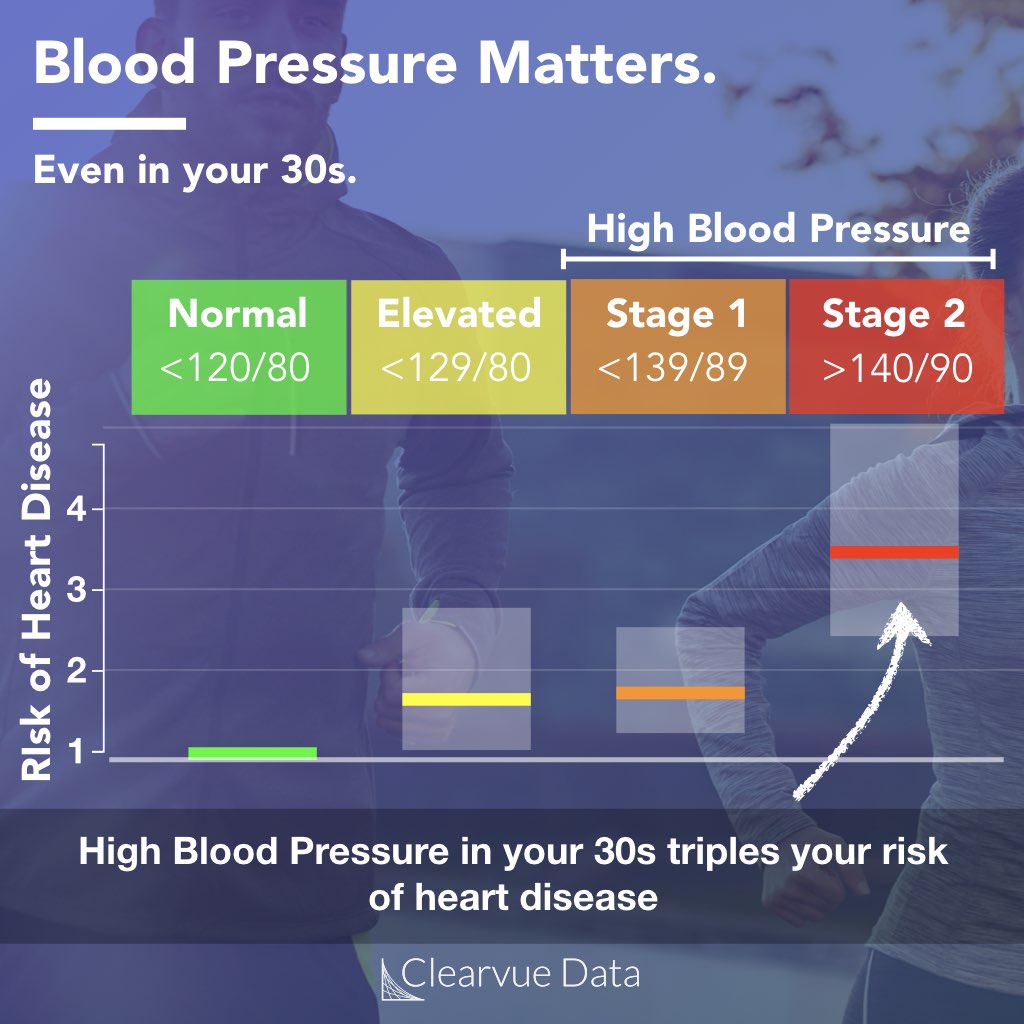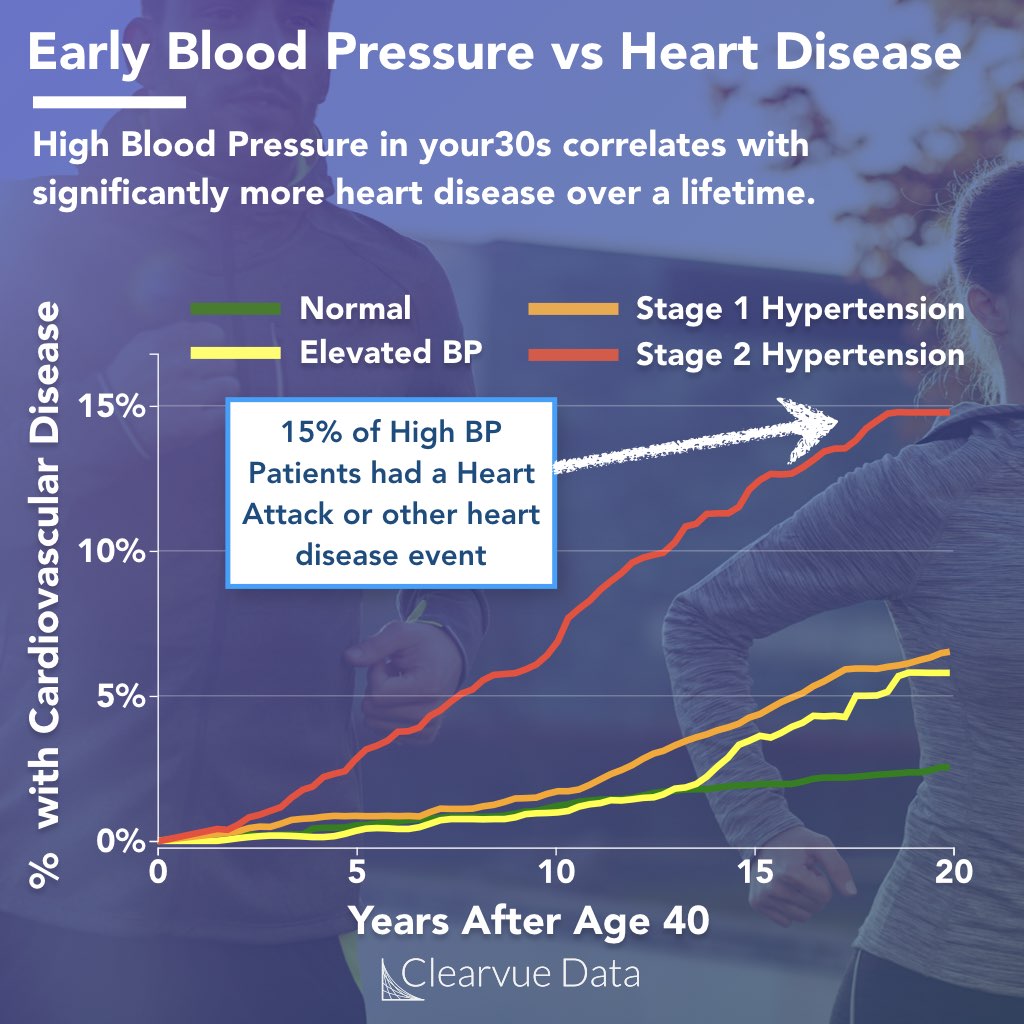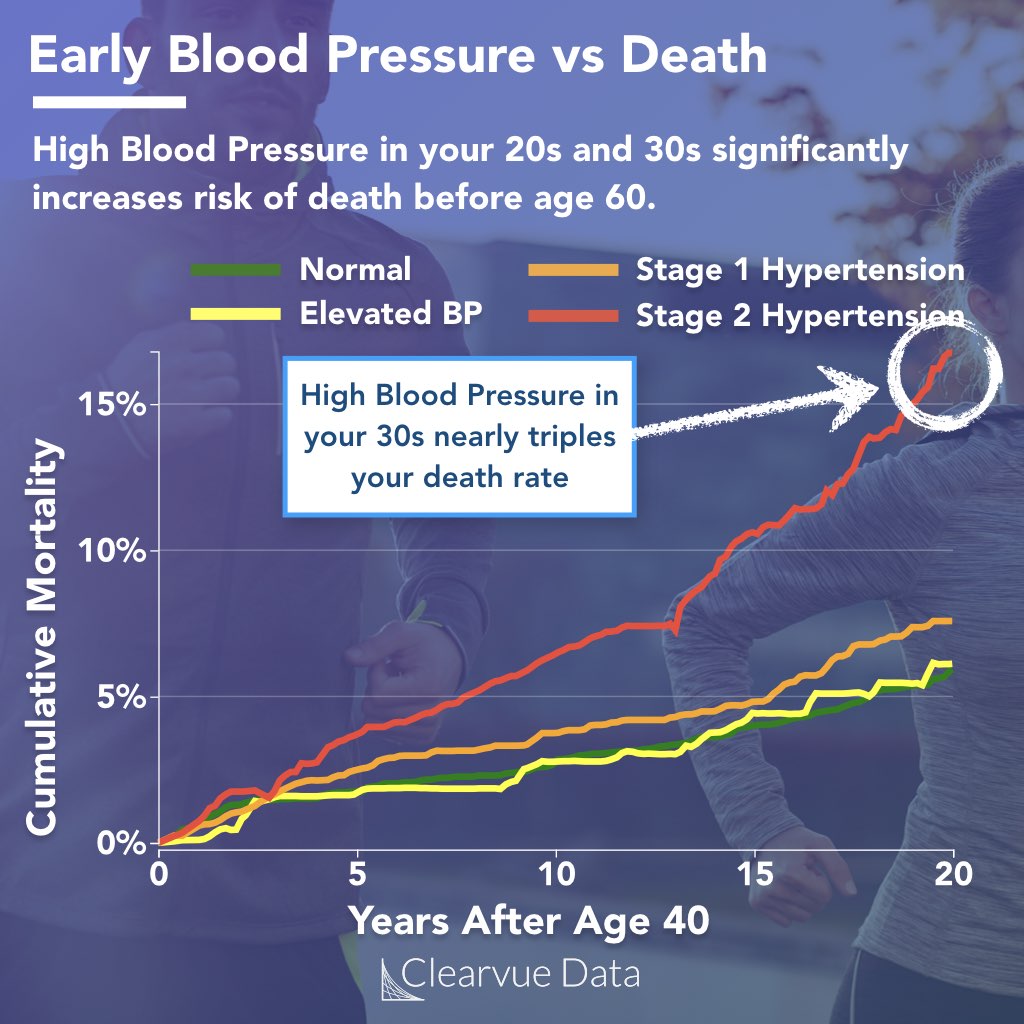New research this year has completely changed the way doctors think about blood pressure.
Blood pressure matters even in your 30s.
Get your blood pressure checked, it could save your life.


Many individuals in their 20s and 30s, myself included, feel that we are invincible to heart disease, stroke, and heart attacks.
New data shows that the truth is, we aren’t. While the chances of getting a heart attack are a lot lower in your 30s, having high blood pressure in your 30s can significantly increase your risk later in life.
The habits that we develop in our 20s and 30s have an immense influence on our quality of life and our health in our 60s.
Traditionally, doctors have considered blood pressure over 140/90 to be high.
More recent studies and guidelines have found that this 140/90 threshold is far too high. In fact, any blood pressure over 130/80 should be considered high blood pressure as well and should be treated as a medical condition.
Some research, including this study, have shown that blood pressure above 120/80, which doctors in the past may have considered normal, can negatively impact your health.
In one of the largest studies to date on blood pressure in early adulthood, 4851 adults had their blood pressure carefully checked in their 30s, and were then followed for 20 years after to see whether their blood pressure as young adults affected their health outcomes as older adults in their 50s and 60s.

The results showed that patients with a blood pressure higher than 140/90, which is now classified as Stage 2 Hypertension, had an estimated 3x increase in their risk of a cardiovascular event compared to normal patients.
These events include heart attack, stroke, hospitalizations for heart failure, and peripheral vascular disease treated with a procedure.
Patients with Stage 1 Hypertension, as defined by blood pressure higher than 129/80 and less than 139/89, had nearly double the risk of a cardiovascular event compared to normal patients. Even patients with elevated blood pressure, who would have been considered “normal” just a few years ago, showed evidence of higher risk as well.
As most of us know, cardiovascular events such as heart attacks can lead to early mortality before age 60. However, even if we survive, these events can lead to disability and permanently change to our quality of life.

When the researchers analyzed the rate of premature deaths in these patients, they found a startling high rate of mortality in patients with high blood pressure in their 30s. Patients with Stage 2 Hypertension in their 30s had nearly triple the mortality rate of “normal” patients.
This is somewhat surprising as these analyses looked at all-cause mortality, which includes all causes including car accidents and cancer.
One explanation for the high increase mortality rate is that patients with high blood pressure may have lifestyle choices that lend themselves to a higher death rate.
In any case, the data does clearly suggest that having blood pressure over 129/80 is associated with a higher risk of premature death.
First and foremost, get checked at your next visit and talk to your doctor. Blood pressure is easy to check and relatively easy to fix as well.
If you find out you have high blood pressure, which many people do, there are some great lifestyle changes you can make that can start you on a path to lower blood pressure and better health. Your 60s self will thank you.